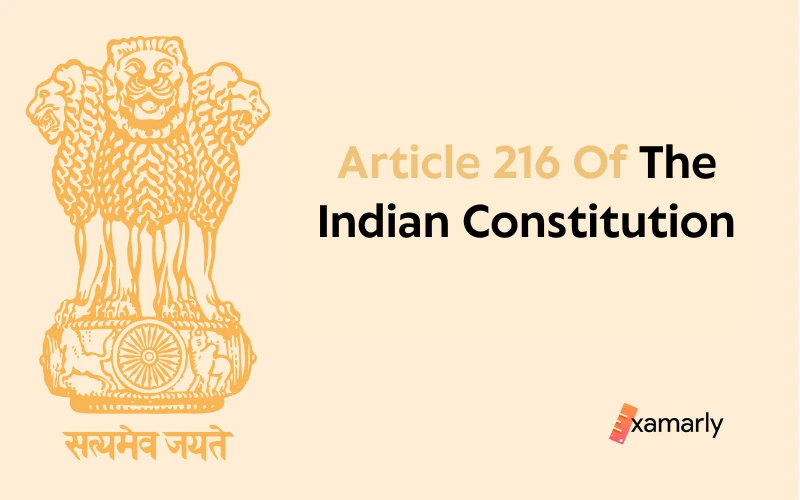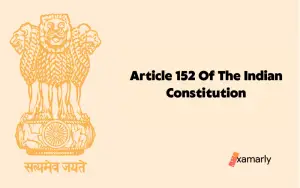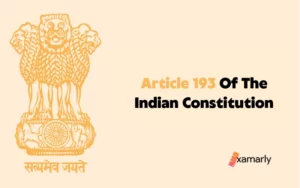We have all had erroneous thoughts at some point about the size of the High Court. Does the composition of each HC remain the same across all States, or does it vary? Why is it that the composition of HC varies between States if it does? What Constitutional Article specifically addresses it?
The constitution of the High Courts is addressed under Article 216 of the Indian Constitution.
Chapter V, which is devoted to the “High Court in States,” discusses the aforementioned Article. Part VI of the Constitution, which is devoted to the Articles that have provisions pertaining to “The States,” is where this Chapter is placed.
This page covers the aforementioned Article in its entirety.
What Is Article 216 Of The Indian Constitution?
Article 216 deals with the composition of the High Court of each state of Country India. Its provisions are as follows:
Every High Court must have a Chief Justice, in addition to the other Judges that the President appoints whenever he or she from time to time deem it essential to do so.
Which Amendment Amended Article 216?
According to Article 216, the President is given the authority to appoint as many judges to a High Court as he may occasionally determine is required. Additionally, he is granted the right to specify the maximum number of judges that can serve on each High Court through a separate decree.
Due to the fact that the order that sets the limit can be altered at any time by the President, the proviso is not very significant from a practical standpoint.
The appointment of additional and acting judges for whom a provision is requested will also require either frequent changes to the order or a large number being set as the maximum. Therefore, it is suggested under the 7th amendment of the Indian Constitution that article 216 be amended to remove the proviso.
Composition Of High Court
According to the constitution, India has a single integrated legal system. This implies that the highest court, known as the Supreme Court, is considered to be the head of all courts and that the High Courts of all states serve under it.
Because the Constitution does not specify the size or breadth of a high court and instead leaves that decision up to the president, the high court is made up of the Chief Justice and any additional judges the president chooses. Depending on the volume of work at any given high court, the president defines the strength.
You may also read: Article 356 Of The Indian Constitution
Conclusion
In the Judicial system of India, High Court is the highest court of a State of India and other Subordinate Courts operate under it.
Article 214 of the Constitution of India requires every State of India must have High Court and Article 216 set the composition of the highest court of a State.
FAQs
What Article 216 Deals With?
Article 216 of the Indian Constitution deals specifically with the constitution of the High Courts.
Who Has The Authority To Determine The Strength Of the High Court?
The workload of any given high court determines how many judges are appointed to each high court, which is specified by the President.
What Is The Constitution Of The High Court?
Every High Court shall have a Chief Justice and such other Judges as the President may from time to time, in his or her discretion, may designate. In this way, in contrast to the Supreme Court, the number of judges on a High Court is not fixed and can be established by the President on a case-by-case basis, with consideration given to the amount of work that is brought before a High Court.
Which High Court Has The Maximum Number Of Judges?
There are a total of 160 judges working at the Allahabad High Court, making it the court with the most judges in the country. The commencement of its existence can be dated back to the year 1866.
Which Indian High Court Is The Smallest?
The Sikkim High Court has the smallest authorized court strength of any High Court in India at just three judges. The year 1975 marked the beginning of its existence.
Which Amendment Amended Article 216?
The 7th amendment has amended Article 216 and deleted the proviso. The proviso is not particularly important from a practical perspective because the President has the authority to change the order that sets the limit of having a maximum number of judges in a High Court at any moment.






